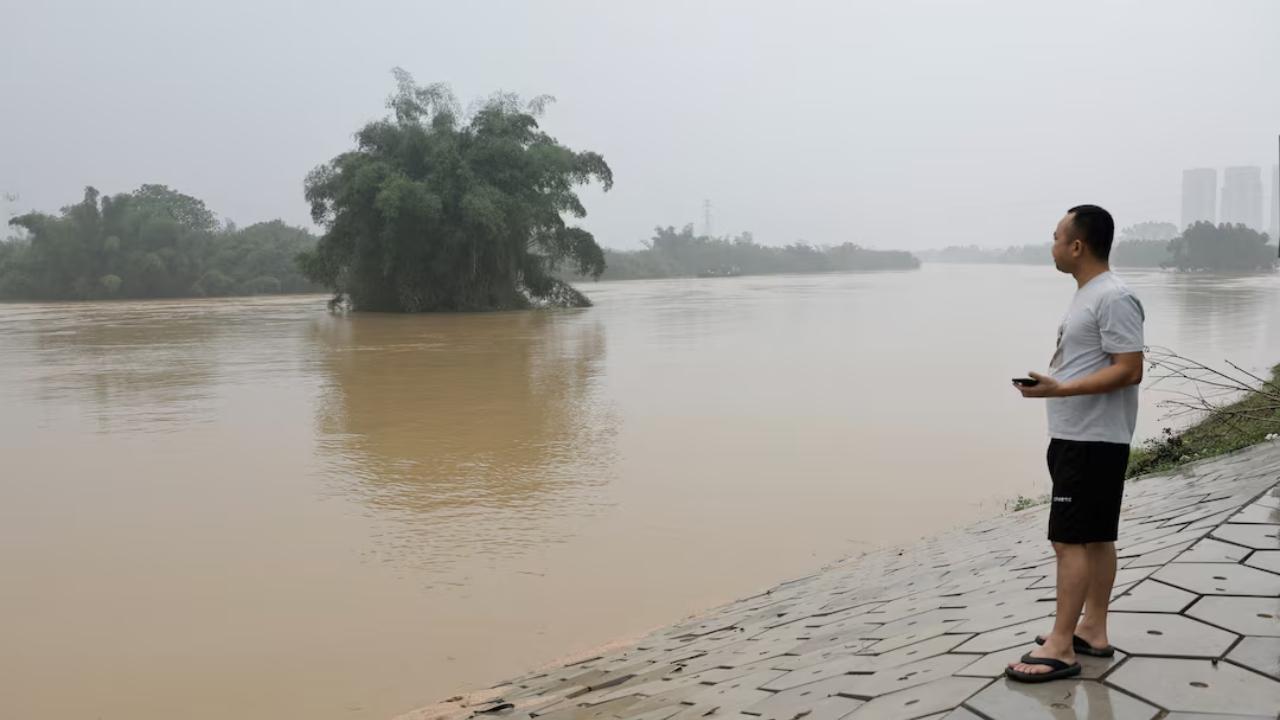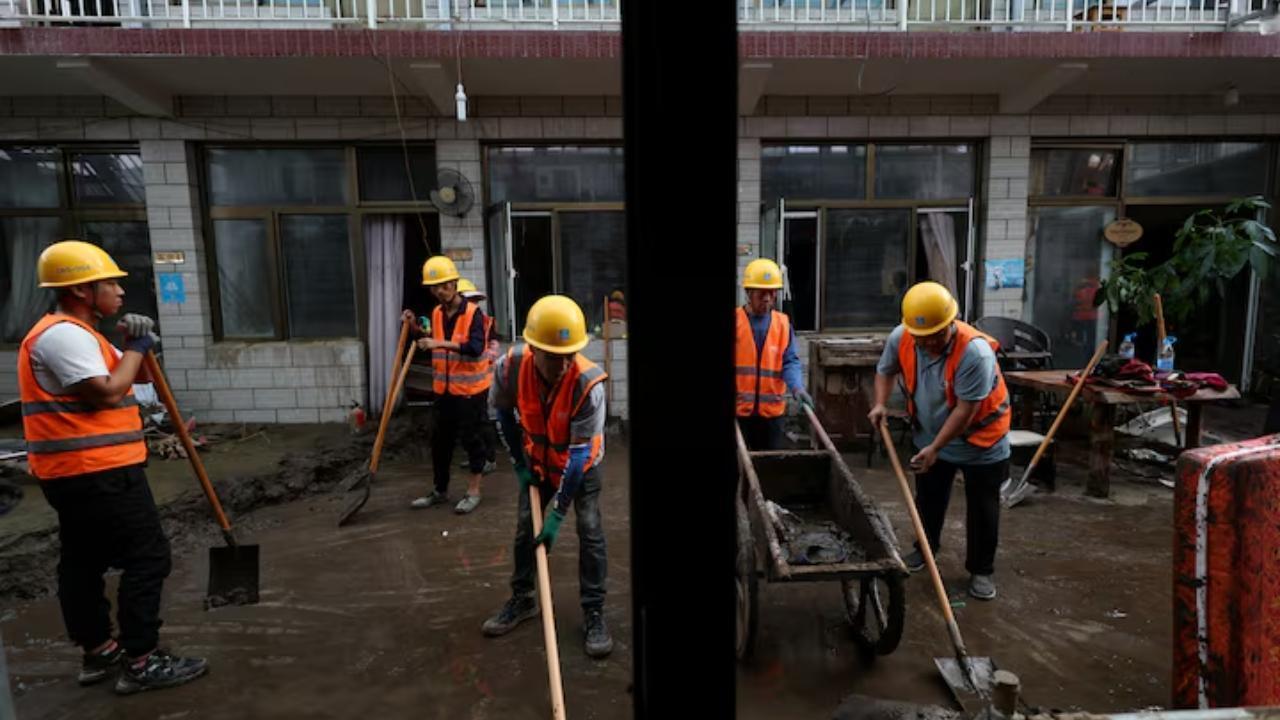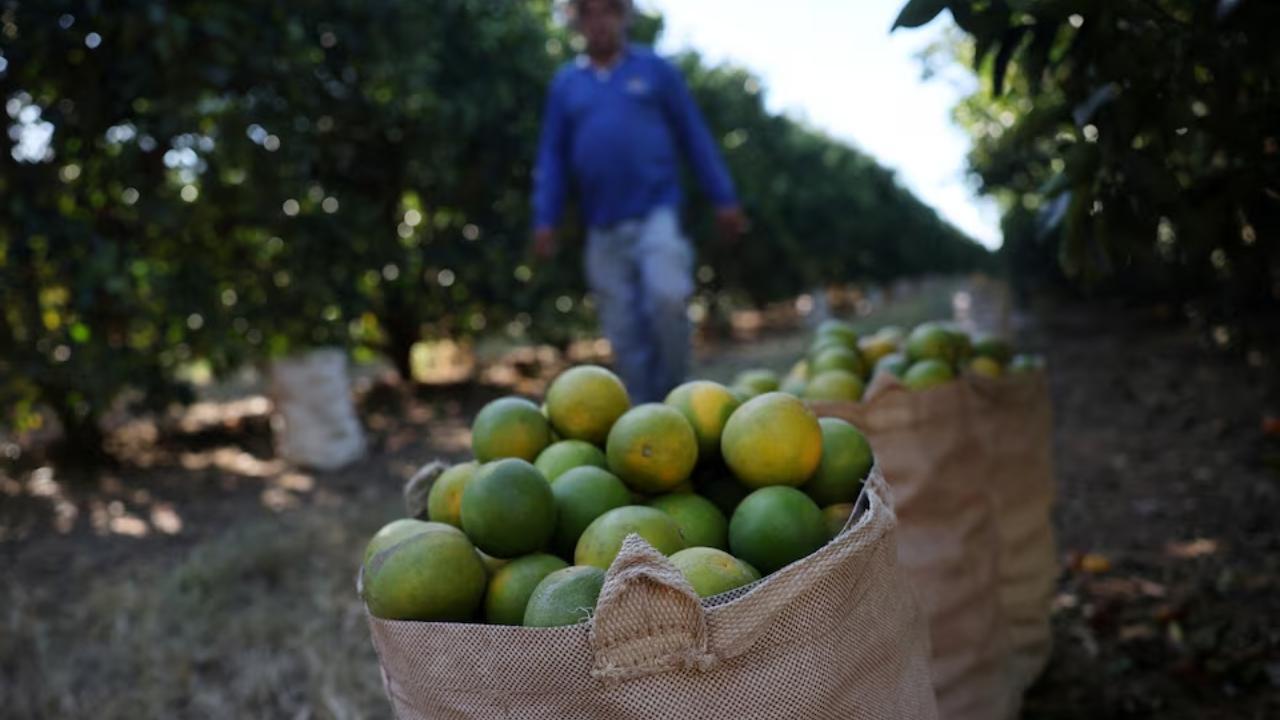
Post by : Monika
Photo: Reuters
The flooding in China this year was caused by unusually heavy and continuous rainfall during the spring and early summer months. Rivers and lakes overflowed, and many areas, especially in central and southern China, saw large amounts of water covering farmland, towns, and cities
. The water damaged homes, roads, bridges, and important infrastructure, leaving many people displaced and in urgent need of help.
Some provinces, including Henan, Hubei, Anhui, and Jiangxi, were among the worst hit. These areas saw floodwaters rise quickly, forcing thousands of families to evacuate. Schools and hospitals had to close, and transport services were disrupted, making it hard for emergency teams to reach those in danger.
Economic and Social Impact
The financial losses from the floods have been huge, estimated at $7.6 billion. This number includes damage to homes, businesses, farms, and infrastructure such as roads and bridges. Many farmers lost crops and livestock, which affects food supply and local economies.
The floods also caused power outages and damaged water systems, making daily life difficult for millions. Clean drinking water became scarce in some places, raising concerns about health and hygiene. Medical services worked hard to treat injuries and prevent diseases that can spread after floods, such as infections and waterborne illnesses.
Many people were forced to leave their homes temporarily or even permanently because of the damage. Shelters were set up, but the conditions were often crowded and uncomfortable. The government and local communities worked together to provide food, clothing, and medical care to those affected.
Climate Change and Flooding
Experts say that the increasing frequency and intensity of floods in China and other parts of the world are linked to climate change. Rising global temperatures cause more evaporation, which means the atmosphere holds more moisture. When heavy rains come, they can fall in a shorter time and cause severe flooding.
China has seen several major floods in recent years, and this latest event fits a worrying pattern. Climate scientists warn that without action to reduce greenhouse gas emissions and improve water management, such disasters may become even more common.
Government Response
The Chinese government responded quickly to the floods by sending rescue teams, military personnel, and emergency supplies to the affected areas. Temporary shelters were built, and efforts were made to repair damaged roads and restore electricity and water supplies as fast as possible.
Authorities also increased monitoring of rivers and dams to prevent further disasters. They have urged people living near rivers to stay alert and be ready to move if water levels rise.
In addition to immediate relief, the government is focusing on long-term solutions. These include improving flood defenses, building better drainage systems, and planting more trees to absorb rainwater. Officials say that adapting to climate change is a key priority for China’s future.
Challenges Ahead
Despite the quick response, the floods exposed challenges in how China manages its water resources and prepares for extreme weather. Urban areas, especially big cities, are vulnerable because concrete and asphalt prevent water from soaking into the ground, leading to fast runoff and flooding.
Rural areas often lack strong flood defenses and face more damage to crops and homes. Many affected communities are still recovering, and rebuilding will take months or even years.
Economic losses from the floods add to other pressures on China’s economy, such as slower growth and trade tensions. The government will need to balance rebuilding efforts with other priorities.
What This Means for the Future
The floods in early 2025 serve as a clear reminder that climate change is not a distant problem but something happening right now. China, like many countries, must prepare better for such natural disasters.
Experts say this means investing more in early warning systems, emergency response training, and infrastructure that can handle extreme weather. It also means working internationally to reduce the causes of climate change by cutting carbon emissions.
For the people affected by the floods, the coming months will be difficult. Many lost homes, jobs, and livelihoods. Recovery will require support from the government, communities, and organizations working together.
Global Connection
China’s experience with flooding is part of a wider global challenge. Other countries around the world also face risks from floods, storms, heatwaves, and droughts caused by changing climate patterns.
International cooperation is needed to share knowledge, technology, and resources to protect people and economies everywhere. China has taken part in global climate talks and agreed to reduce its emissions in the coming decades.
The floods in China during the first half of 2025 caused serious damage and financial losses totaling about $7.6 billion. Heavy rains overwhelmed rivers and cities, forcing many people to evacuate and disrupting everyday life. The disaster showed how vulnerable China is to extreme weather events, which are becoming more common due to climate change.
The government acted quickly to provide relief and is working on long-term measures to reduce future risks. However, rebuilding and recovery will take time and resources.
This event highlights the urgent need for stronger efforts worldwide to fight climate change and prepare communities for its effects. Protecting people’s lives, homes, and economies from natural disasters is one of the biggest challenges of our time.
With cooperation and careful planning, it is possible to reduce damage and save lives in the future. China’s floods in 2025 remind us all that the climate crisis is real, and immediate action is necessary.
flooding in China










Keto Diet and Mental Health: New Surprising Benefits Found
Discover how the keto diet reduces depression symptoms and enhances brain health. Learn about keto’s

China faces heavy losses from natural disasters in August
Natural disasters in China during August caused $2.8 billion in losses, affected over 10 million peo

Brazil to Propose New Forum for Climate and Trade Talks at COP30
Brazil plans to create a new international forum to discuss how climate policies impact trade, aimin

Brazil's Citrus Industry Hit Hard by Greening Disease
Nearly half of Brazil's citrus belt is affected by greening disease, leading to significant losses i

Sea Shepherd Removes Illegal Octopus Traps in Greece
Sea Shepherd volunteers in northern Greece have removed thousands of illegal octopus traps, rescuing

New Waterbomber to Fight Growing Wildfires Globally
De Havilland Canada's DHC 515 waterbomber, designed to combat increasing wildfires, has received glo